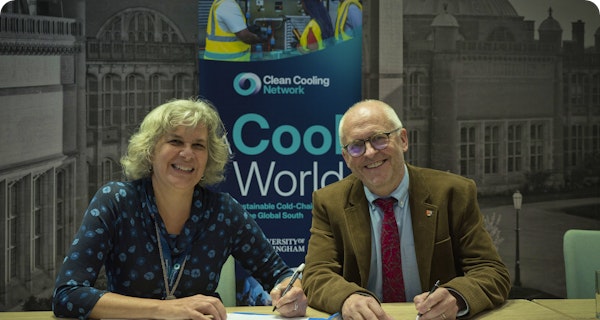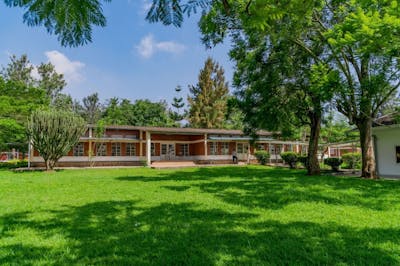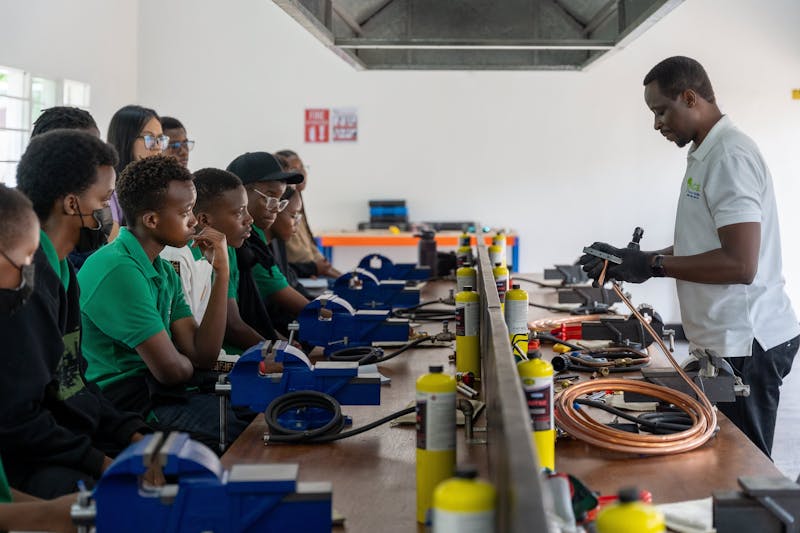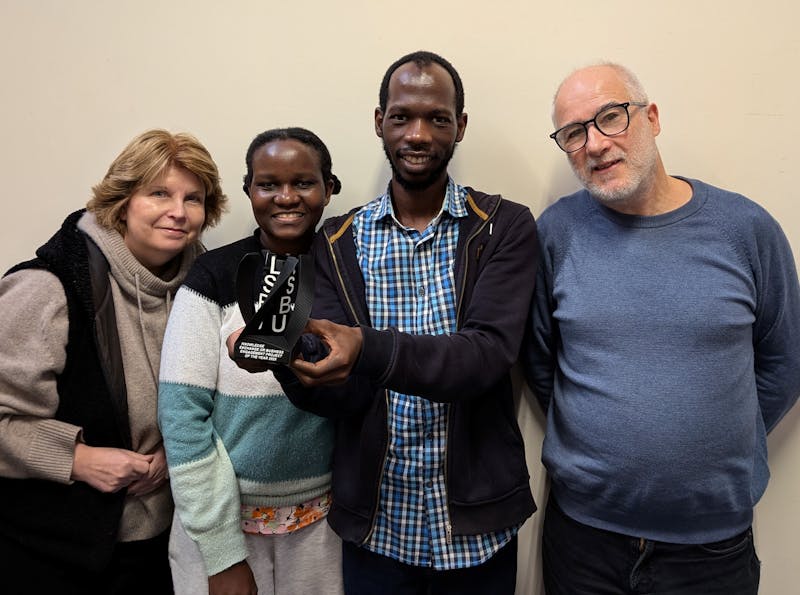#FestivalOfCooling
Exploring the growing importance of cooling and cold-chains in a fast-warming world
Fridge competition extended until end of January 2026
Enter now!
Show us your fridge
We are excited to welcome a selection of schools and their students to the Festival of Cooling, and we invite you to take part in our Fridge Cooling competition. You will be given a thermometer pack to take away with you to record the temperature of your fridge and how your food is being stored inside it.
On behalf of your students, you can then enter our competition by joining the CCN Network and posting 2 or more photos of each student's fridge showing the temperature of the fridge, showing the thermometer in action, and what the food inside looks like.
The festival is now complete. We want to say a big thank you to all those who helped and continue to develop The Programme across the globe.
The Clean Cooling Network (CCN) and the Africa Centre of Excellence for Sustainable Cooling and Cold-chain (ACES) hosted a public engagement “Festival of Cooling” at the ACES Campus in Kigali, Rwanda, and via an outreach programme.
The aim was to engage the public and explore the growing importance of cooling and cold-chains in a fast-warming world - through a week of events, panel discussions, demonstrations, competitions, and workshops on campus and online. Outreach to schools, communities, government, and businesses also take place.


Picture of the Week: Chris de Bode reflects on 2025
19th Dec 2025
Chris de Bode, Visual Imagery Lead at CCN reflects on 2025 from a visual imagery perspective which has been characterised by meaningful progress and shared achievement.

ACES - A review of 2025
18th Dec 2025
Professor Toby Peters shares his reflections from 2025 on the enthusiastic, passionate and dedicated team of people that has been gathered together in ACES and how, collectively, they have rapidly turned an idea into reality, demonstrating that Rwanda can lead the world in developing innovative, climate-resilient, and inclusive cold-chains.

ACES Wins at the LSBU Research and Innovation Festival
15th Dec 2025
ACES announced as the winner for best Knowledge Exchange or Business Engagement Project of the Year at the recent LSBU Research and Innovation Festival

ACES Mini Cooling Festival "makes STEM come to life" for Rwandan schoolchildren
10th Dec 2025
On Saturday 6 December, 132 students from Ntare Louisenlund School travelled to the ACES campus in Kigali for a "Mini Cooling Festival", a hands-on learning event that set out to "inspire students to understand refrigeration while they are still young".

ACES to welcome school children for a Special STEM visit on December 6th
2nd Dec 2025
The excitement from the 2025 Festival of Cooling is still spreading and this time, it’s bringing an entire class to ACES for a dedicated hands-on learning experience.

IOR And ACES Sign MOU to Foster International Collaboration
28th Oct 2025
The Institute of Refrigeration (IOR) and the African Centre for Excellence in Sustainable Cold Chain (ACES) have signed a Memorandum of Understanding (MOU) to strengthen collaboration and promote the exchange of ideas and expertise.
Rubirizi Venue
Everything will be held at our ACES Rubirizi Campus, Kigali, Rwanda.

ACES Rubirizi Campus
Kigali, Rwanda
The Africa Centre of Excellence for Sustainable Cooling and Cold-Chain (ACES) is ideally situated in the capital of Kigali.





